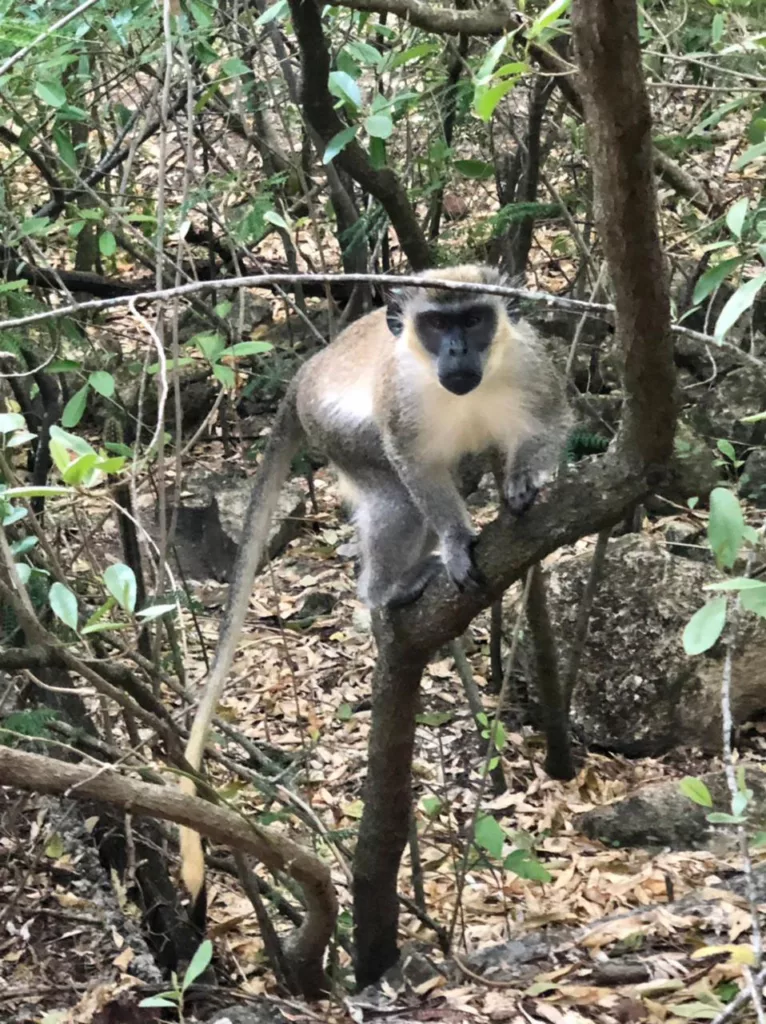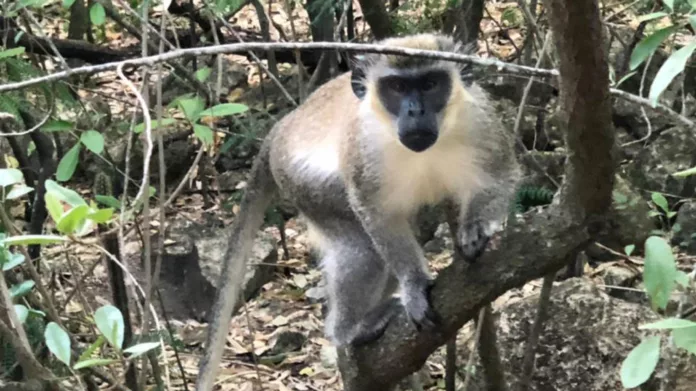By Elesha George
In response to growing concerns over the expanding vervet monkey population on Antigua, several ministries and public sector entities have partnered to cull the mammals.
The monkey population in the eastern part of Antigua has been expanding and is causing challenges for local farmers. To address this issue, the Cabinet has entrusted the Ministry of Agriculture with the task of collaborating with other relevant ministries and agencies to develop effective measures for population control.
Ambassador Lionel Hurst, the Chief of Staff in the Office of the Prime Minister, revealed that a concerted strategy is in the works to mitigate the situation. While the intention is to manage the vervet monkey population, the specific methodology for control remains under deliberation. He ruled out poisoning due to potential collateral damage to other wildlife. Likewise, he acknowledged the monkeys’ remarkable intelligence and their capacity for emotions, urging a humane approach.
“We know that it won’t be poison because other wildlife will be affected by it, so that is ruled out completely. We also know that some traps might be used but we take into account that the monkeys are very intelligent creatures and, also, they have feelings,” he said.
Vervet monkeys have been increasingly observed in areas such as Newfield and Bethesda, with reports from farmers detailing encounters with juvenile monkeys. These animals have reportedly caused significant damage to crops, compelling some small-scale farmers to alter their crop selection.

“They’ve been around now for eight to 10 years, and the problem is just now beginning to manifest itself in one corner of Antigua and Barbuda, and we intend to keep it there,” Ambassador Hurst said.
Indigenous to southern and eastern Africa, vervet monkeys are distinguishable by their brown bodies, black facial features with white accents. Notorious for their rapid reproduction rates, concerns have grown about the potential for unchecked growth.
“They can have many offspring in a short period of time, and therefore it is in our best interest to try our very best to ensure that the population does not rise,” Ambassador Hurst said.
Because the monkeys are an invasive species, they have no natural predators and as such the population is likely to grow if not properly controlled.
“In many places, especially St Kitts and Barbados, they have become like pests in that they raid the farms of hardworking farmers, destroying crops and other valuable food that are intended for human consumption and they’ve tried to cull the population in those places. It becomes very difficult once their numbers begin to multiply,” he said.
In January 2023, the government of Sint Maarten approved a contentious initiative to address their monkey overpopulation. Their three-year plan entails the humane euthanisation of 450 monkeys. Meanwhile, efforts to curtail the vervet monkey population in Barbados have yielded limited success.

